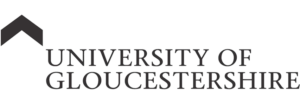Gloucestershire UK
December 7, 2023 2024-09-11 20:17Gloucestershire UK
Your Path to Success
MBA with Certifeka
Full Time
(12 months)
Part Time
(24 months)
Full Time
(12 months)
Part Time
(24 months)



Your Path to Success
MBA with Certifeka
Full Time
(12 months)
Part Time
(24 months)
Full Time
(12 months)
Part Time
(24 months)



Welcome to Certifeka’s MBA program, where your journey to career excellence begins. We offer a comprehensive MBA program designed to equip you with the skills and knowledge needed to thrive in the dynamic world of business.
Why you should get your MBA with Certifeka?
Overview
The MBA program at our institution is designed for busy professionals aiming to enhance their strategic, financial, and leadership abilities. It offers a flexible structure with core modules, varied start dates, and even a weekend study option, accommodating individuals with diverse schedules.
Whether you’re an experienced manager or new to the business world, this MBA acts as a pathway to sought-after management and leadership roles. It provides a unique opportunity for recent graduates or those with limited work experience to confidently step into managerial positions. The curriculum emphasizes contemporary business operations, equipping students to leverage emerging trends for strategic growth.
The program places a strong emphasis on professional development, ensuring graduates leave with a robust foundation. By the end of the course, students have refined the practical skills needed to lead effectively in today’s dynamic work environment. This, coupled with their ability to drive positive business change, makes them highly sought-after professionals across various industries.
University of Gloucestershire Reputation

The University of Gloucestershire is a dynamic and inclusive community consisting of 12,000 students and 1,500 staff members spread across campuses in Cheltenham and Gloucester. With a history dating back to 1847, the university has evolved significantly and has ambitious plans for the future.
The university’s core focus areas are:
1. Student Life: This involves providing comprehensive support to help students not only succeed academically but also thrive personally. The aim is to create an environment where students can grow and prosper.
2. Student Outcomes: The university is dedicated to helping its students reach their full potential, not only in their academic pursuits but also in their future careers and personal lives. This includes providing resources and opportunities for students to excel beyond the classroom.
3. Research, Innovation, and Enterprise: The institution places a strong emphasis on conducting high-quality research and fostering an environment of innovation and entrepreneurial spirit. This benefits not only students but also faculty and external partners.
4. Civic Role: The university is committed to actively contributing to the betterment and progress of the community it serves. This involves initiatives and activities aimed at promoting the overall well-being and advancement of the local area.
The University of Gloucestershire is a thriving academic community with a rich history and exciting future plans. Its key areas of focus include supporting student well-being and success, facilitating cutting-edge research and innovation, and actively contributing to the betterment of the surrounding community.
Accreditation
MBA Entry Requirements
Academic Qualifications
- A Bachelor’s degree from a recognized institution.
- For international applicants, degrees must be equivalent to a UK Bachelor’s degree.
Work Experience
A minimum of two years of relevant work experience is typically required. This can vary, and exceptions may be considered based on individual cases.
English Language Proficiency
- Proficiency in English is crucial. Applicants whose first language is not English must provide evidence of English language proficiency through recognized tests such as IELTS (minimum score of 6.5), TOEFL (minimum score of 90), or equivalent.
Letters of Recommendation
- Two professional letters of recommendation that attest to your qualifications and potential for success in the MBA program.
Statement of Purpose
- A well-crafted statement outlining your career goals, reasons for pursuing an MBA, and how the ATHE program aligns with your aspirations
Curriculum Vitae (CV) or Resume
- A detailed CV or resume highlighting your educational and professional background
Interested to speak with an advisor?
Modules & UNITS -(180 credit)
All students must complete the following 8 modules (120 Credit) + MBA TOP - UP (60 Credit)
Fees and Funding
Students usually support themselves through postgraduate loans, private savings, family support, or sponsorship from an employer. For advice and guidance on your funding options, contact the Money Advice team at [email protected] or call 01066610220.
Fees and Funding
Students usually support themselves through postgraduate loans, private savings, family support, or sponsorship from an employer. For advice and guidance on your funding options, contact the Money Advice team at [email protected] or call 01066610220.










